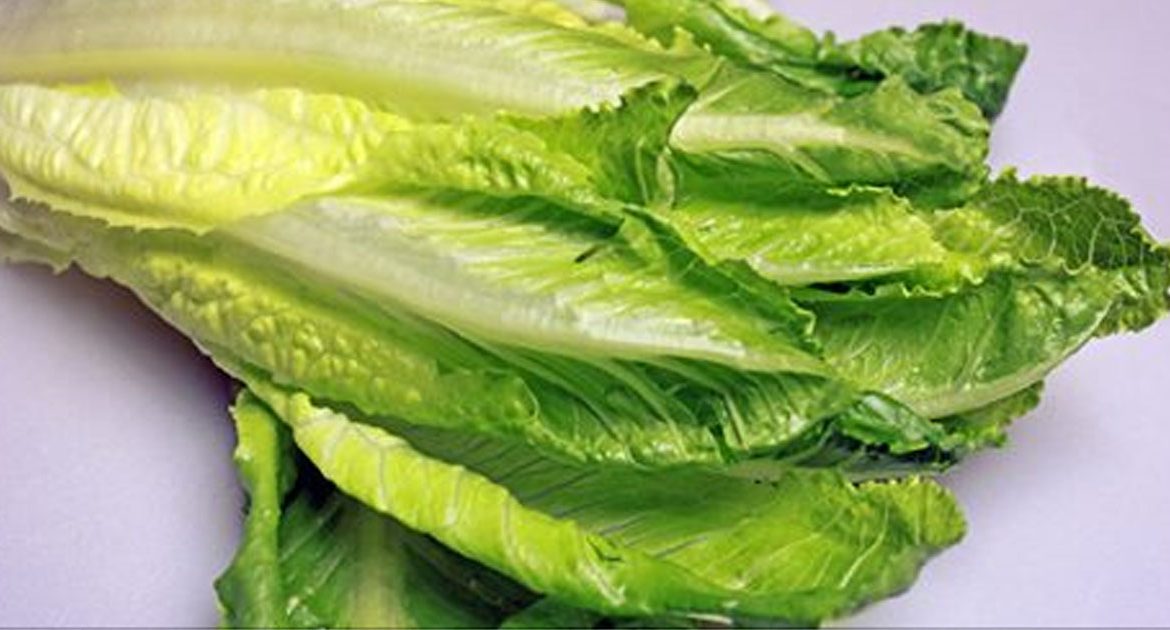Team Clark is adamant that we will never write content influenced by or paid for by an advertiser. To support our work, we do make money from some links to companies and deals on our site. Learn more about our guarantee here.
If you’ve turned over a new leaf this year and started eating healthier, you may have taken to eating green salads as the way to go. But a new warning from a consumer advocates group signals that a certain type of lettuce may not be all that healthy for you right now.
The reason for the concern is because a deadly strain of E. Coli has been linked to romaine lettuce, according to Consumer Reports.
Stay away from romaine lettuce, warns Consumer Reports
Nearly 60 people in the United States and Canada have been sickened from E. Coli, the group says. One person has died and five more have been hospitalized due to the bacteria outbreak, according to Centers for Disease Control & Prevention.
In addition to the Canada cases, the agency says people in 13 states — California, Connecticut, Illinois, Indiana, Michigan, Nebraska, New Hampshire, New York, Ohio, Pennsylvania, Virginia, Vermont and Washington — have reported illnesses linked to E. Coli.
While the cases began popping up in mid-November, the Canadian health officials and Consumer Reports have just recently traced the source of the sicknesses to romaine lettuce.
Here’s the big takeaway: If you’ve purchased romaine lettuce from the store over the last several weeks you may want to dispose of it so as not to get sick.
“Romaine lettuce can have a shelf life of up to five weeks; therefore it is possible that contaminated romaine lettuce purchased over the past few weeks may still be in your home,” the agency says on its website.
Here are some food-handling tips to reduce the risk of E. coli infection
If you’re determined to make your own salad, there are some things you should always keep in mind when handling lettuce, courtesy of the Canada Public Health Agency.
Wash your hands
Hand washing is the #1 way to cut down on food borne illness and that’s one of the reasons why you see those “wash-your-hands” signs directed at employees in every restaurant bathroom. At home, before and after you prepare your salad, wash your hands thoroughly with warm water and soap. The Canadian agency says to do this for “at least 20 seconds.”
Lettuce spray
If you’re in the habit of soaking your lettuce, don’t do it: Bacteria from the sink can contaminate your food. If your kitchen sink has a spray nozzle, spray the head of lettuce with cool running water (even the bagged or pre-packaged variety). If you don’t have a spray, rinse your lettuce under the faucet until all the dirt has been washed off (discard any outer leaves). Also, there’s no need to wash your food with anything other than water, according to the Canadian health agency.
Wash your eating spot
Before and after handling lettuce, use warm water and soap to wash plates, the cutting board, countertops, utensils and anything else used in preparing your salad. This way, you have the best chance of limiting cross-contamination.
Keep it in the fridge…
After you’ve prepared your salad, you can keep the excess in the refrigerator for up to seven days. One you notice the leafage beginning to brown or wilt, you should discard it.
…but not for too long
Leftovers containing cooked foods (salads with chicken, shrimp or salmon) should be eaten within four days, according to the USDA website. Any food left outside the fridge at room temperature for more than two hours should be discarded. If you’re outside and the temperature reaches past 90 degrees, discard after one hour, the agency says.
So hopefully these tips can help you keep a happy, healthy home and full belly. Know any other food-handling tips we missed? Let us know in the comments.






